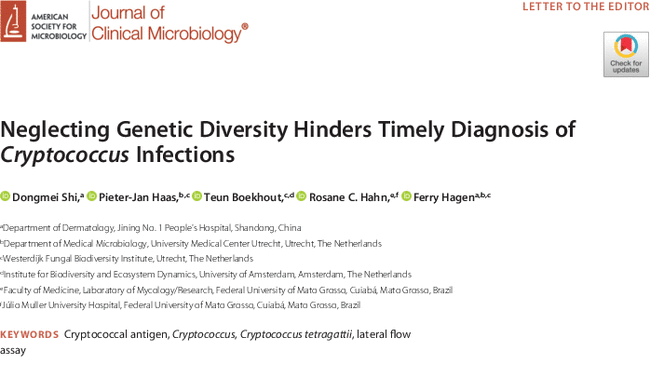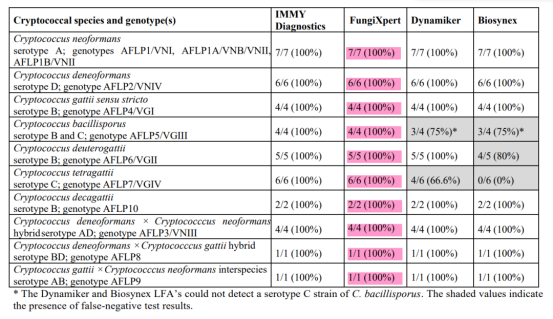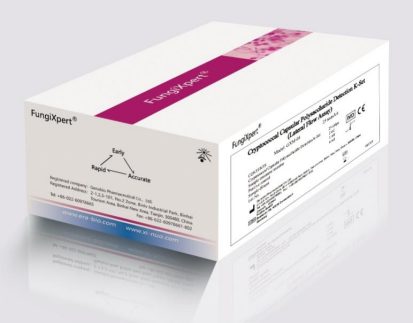【Academic Frontier】FungiXpert®Cryptococcus detection reagent was highly evaluated by Journal of Clinical Microbiology
A recent multi-center study on the diagnosis of cryptococcal infections was conducted by the Medical Center of Utrecht University, the Institute of Biodiversity and Ecosystem Dynamics of the University of Amsterdam, the Westerdijk Institute for Fungal Biodiversity, and Matogro The Fungi Research Laboratory of the Federal University of Somalia and the Júlio Muller University Hospital of the Federal University of Mato Grosso jointly initiated and published the title “Neglecting genetic genetics” in the Journal of Clinical Microbiology in January 2021. Diversity hinders timely diagnosis of Cryptococcus infections" article. This article compares four cryptococcal colloidal gold detection products, and evaluates the diagnostic performance of each product for different cryptococcal strains from the perspective of the genetic diversity of Cryptococcus neoformans and Cryptococcus guttata. Provide an effective basis for the rapid clinical diagnosis of Cryptococcus.

Research methods:
Four brands of cryptococcal colloidal gold quick test reagents were used to test a series of different strains reflecting the genetic diversity of cryptococcus, including the products of four companies and brands including Tianjin FungiXpert® and IMMY Diagnostics of the United States. Forty strains of Cryptococcus including all seven recognized species and their interspecific hybrids were tested.
Research result:
The research results show that FungiXpert® (Genobio's brand) and IMMY's colloidal gold test card can detect all seven pathogenic Cryptococcus.

When testing the other two colloidal gold products, some strains such as C. bacillisporus, C. deuterogattii, and C. tetragattii, especially C. tetragattii, are prone to false negative results. However, C. tetragattii infection is common in sub-Saharan Africa and the Indian subcontinent, which have the highest number of cases of HIV-related cryptococcal meningitis. Importantly, 13-20% of HIV-associated cryptococcal meningitis cases are related to C. tetragattii.
In view of recent reports of false negative results in cryptococcal tests in Botswana and Uganda, the authors concluded that C. tetragattii is likely to be present in the clinical research samples with these false negative results.
Analysis conclusion:
The author suggests that in the establishment or evaluation of cryptococcal detection methods, the local epidemiology, genetic background and taxonomic diversity should be considered. Pathogenic Cryptococcus should not be limited to a single classification of A-D serotypes. Considering the revised cryptococcal classification method in product design and verification can reduce the sensitivity loss caused by false negatives.
The cryptococcal capsular polysaccharide detection card (colloidal gold method) developed and produced by Genobio Pharmaceutical Co., Ltd. adopts the colloidal gold detection method, which can effectively identify all types of cryptococcal strains. The operation is simple, and the results are intuitive and effective. After spotting Test results can be obtained in 10 minutes! Provide a more reliable basis for the early and rapid diagnosis of Cryptococcus!



